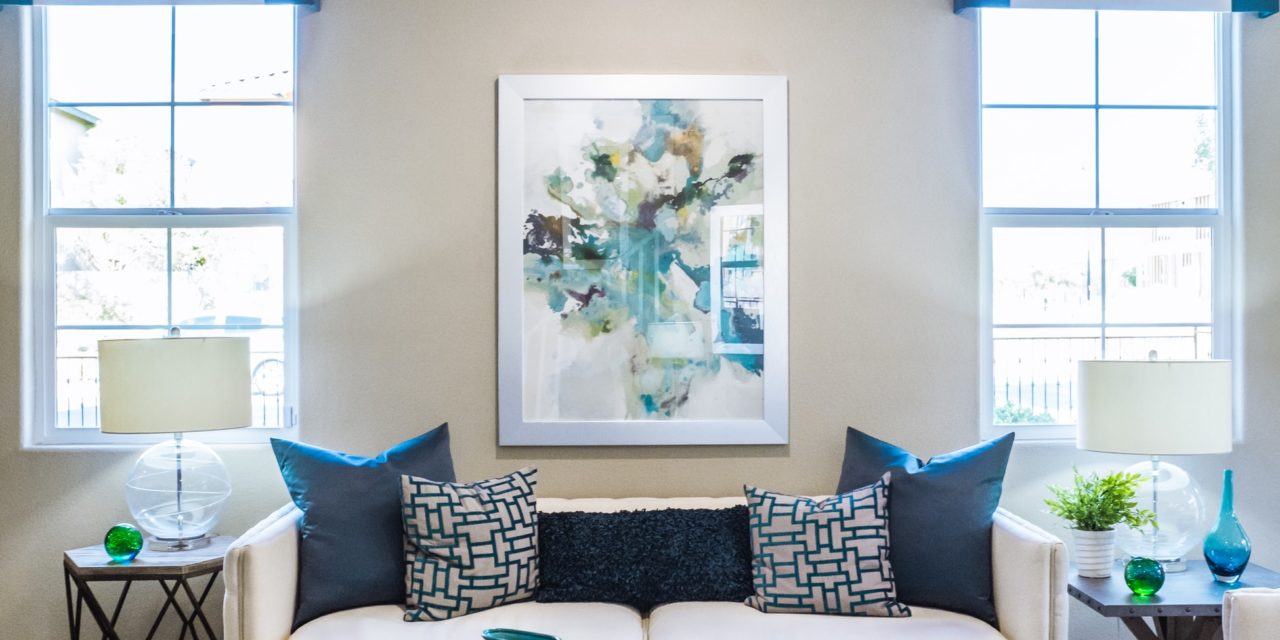[ad_1]
Nothing can finish a room's décor like the effective use of wall art. But people are often perplexed about what to put where. Some of the most common mistakes I see are: art hung too high, size of art out of proportion with the size of the wall and art disconnected from the furniture beneath it.
Here are some tips to help ensure your wall art enhances, rather than detracts from, the overall look of your room.
1. The right height
Most people mistakenly believe that pictures should be hung at eye level. But whose eye? A 6'2″ man or a 5'4″ woman? A better way to gauge the correct height is by looking at how the picture relates to the furniture below it. A good rule of thumb is to hang a picture so that the bottom is 6-8 inches above a sofa back or 8-10 inches above other furniture. Higher than that and it becomes disconnected from the furniture and makes the room look out of balance.
2. The right balance
Another mistake people commonly make is hanging a small picture behind a large sofa. A picture should be one half to two thirds the width of the piece of furniture below it. If a picture is too narrow for the spot, you can flank it with two smaller pictures to fill the space.
3. Think of groupings as one picture
If you don't have a large enough piece of art to adequately fill a big space, you can use groupings of smaller pieces. The individual pictures should be framed in similar materials (metal, wood, etc.). They don't have to be identical, but they shouldn't “fight” with each other.
Before you hang your grouping, work out a pleasing arrangement on the floor. You can also cut out pieces of paper in the same shapes as your pictures and tape them on the wall with painter's tape until you are happy with the arrangement. For a cohesive look, the frames should not be more than about 3-4 inches apart.
4. Mirrors do triple duty
Mirrors not only have a functional and decorative use, but they can also become an architectural element. Placed where it will reflect a window and its view, a mirror can act almost as an additional window, increasing the amount of light in a room and making a room seem larger.
Placement of mirrors should follow the same rules of thumb as art, but make sure a mirror is high enough that people can see their reflections without having their heads cut off.
And don't lean a mirror on the mantel, as it will only reflect the ceiling.
If you follow these guidelines when hanging your art, you will see how much more cohesive and balanced your room will look.


